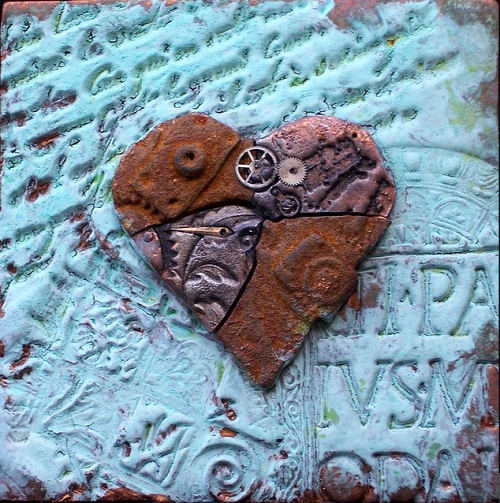FWP:
For background see S. R. Faruqi's choices. This verse is NOT one of his choices; I thought it was interesting and have added it myself. For more on Ghalib's unpublished verses, see the discussion in {4,8x}.
Even in the midst of the lover's supremely longed-for joy, his heart is looking out for something more, something else, some :turfah -- some 'pleasing rarity' or 'wonder' (see the definition above). Perhaps he feels the kind of letdown that we all know, after getting something we want ('I thought it would be... but is this really all there is to it?'). Then the line ends with magar -- that is to say, with either 'but' or 'perhaps'. What an intriguing setup for a mushairah, in which the audience too would have to 'wait' a bit, and would hope for some 'pleasing rarity' in the second line!
If we take the magar to mean 'perhaps', then in the second line we learn that a tormenting, vexatious kind of 'mischief'-- one of the beloved's trademark qualities-- is perhaps necessary for the real taaraaj-e tamannaa . Apparently longing can't be truly assuaged by the sheer sweetness of union. Rather, a bit of spice, saltiness, even bitterness is required for the most piquant effect. The beloved's vexatious, even cruel 'mischief' is what provides ths missing relish that heightens the experience and makes it fully effective, so that the longing is not just temporarily sated but is actually wiped out.
If we take the magar to mean 'but', then the connection between the two lines changes considerably. A new contrast develops: what the speaker is waiting and hoping for is a :turfah , a 'pleasing rarity'; but what is actually needed to wipe out his longing completely is the beloved's fitnah , 'mischief'. He thinks he wants more (kinds of) pleasure, but what he actually needs-- this being the ghazal world-- is an added fillip of cruelty and pain.

Asi:
Even in union with the beloved, the heart has a watch/wait, and the watch/wait is a rather extraordinary one. Apparently at that time there's no need for any watch/wait at all. This is enough: that for the devastation of longing, there seems to be some mischief that is necessary.
== Asi, p. 238